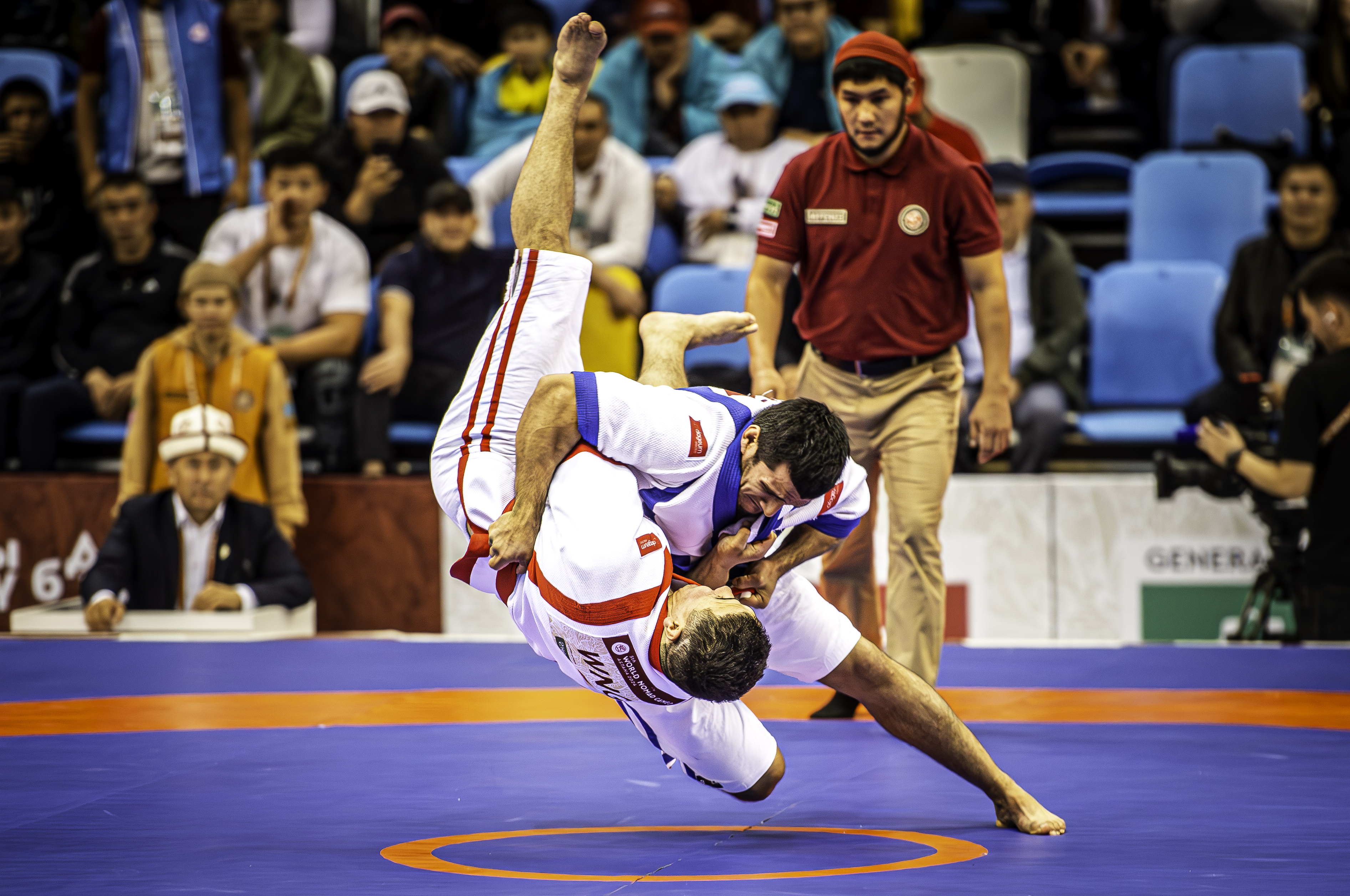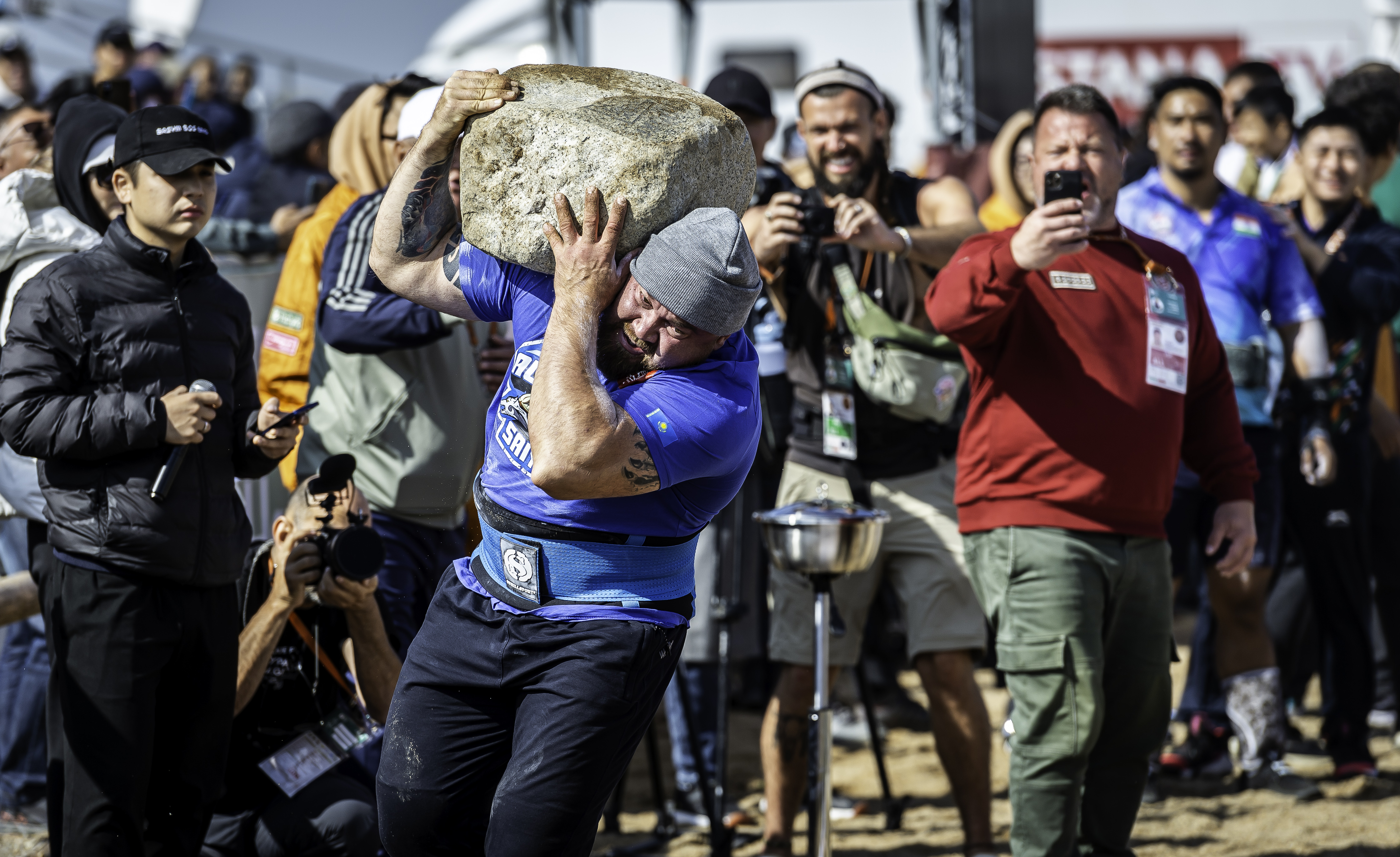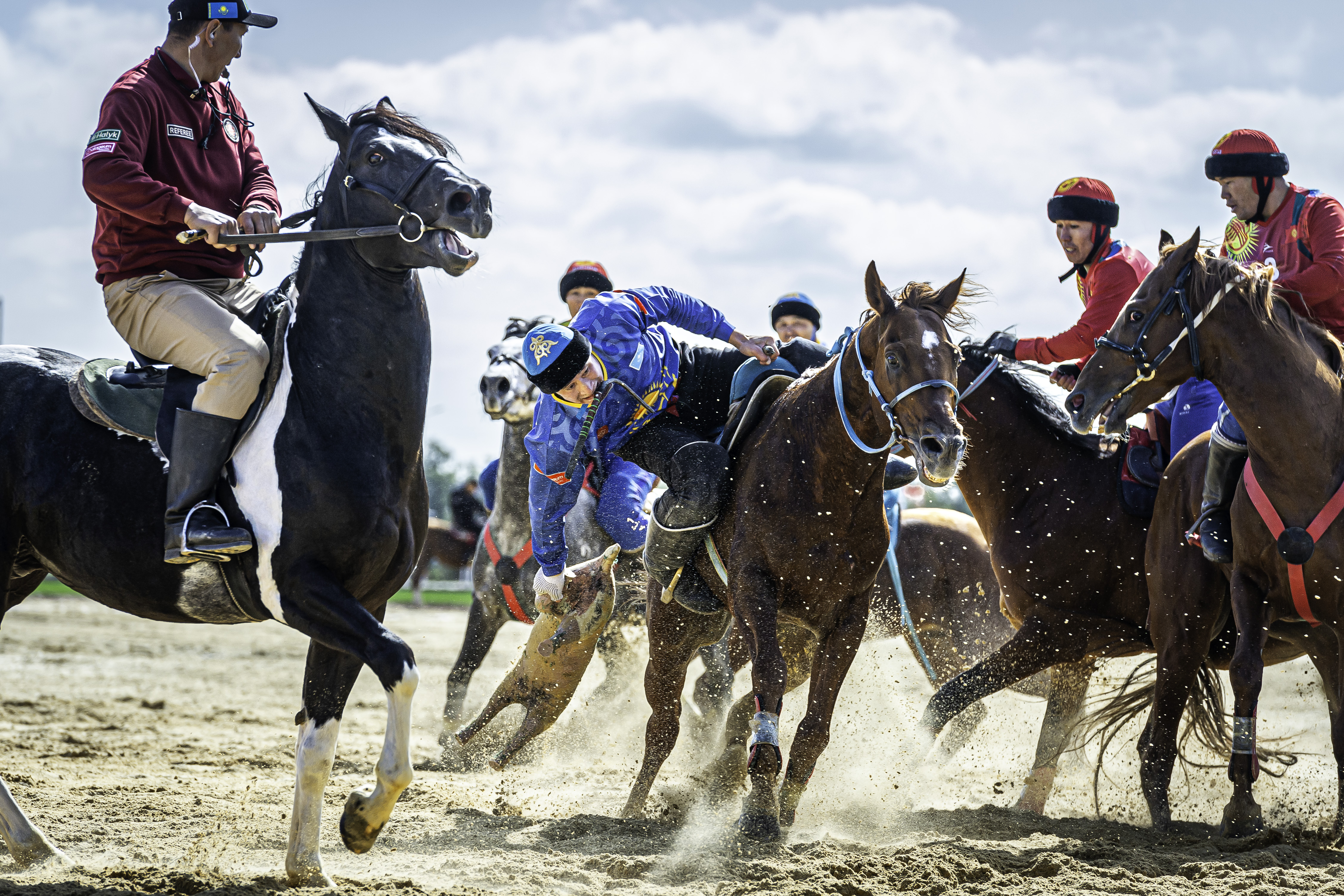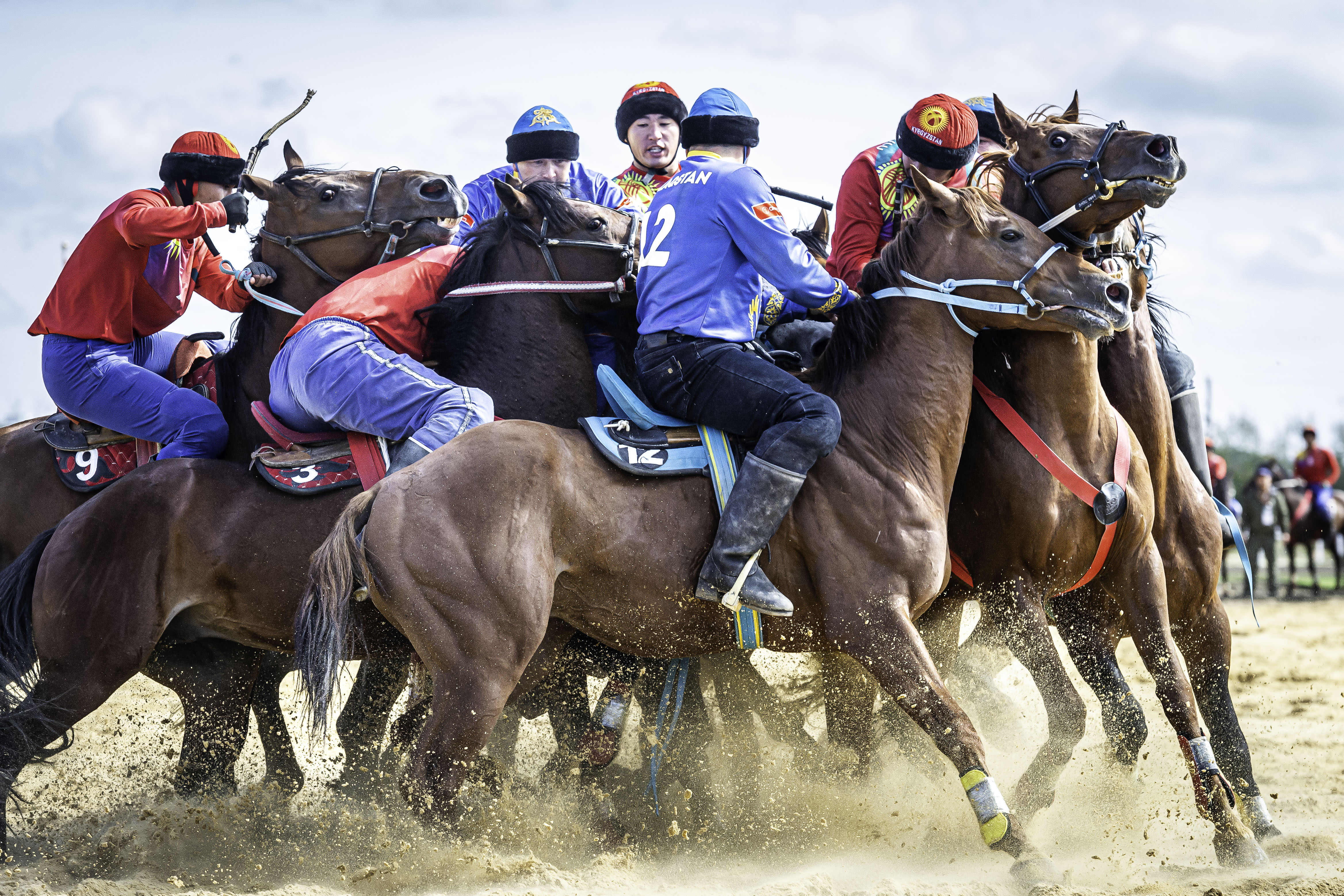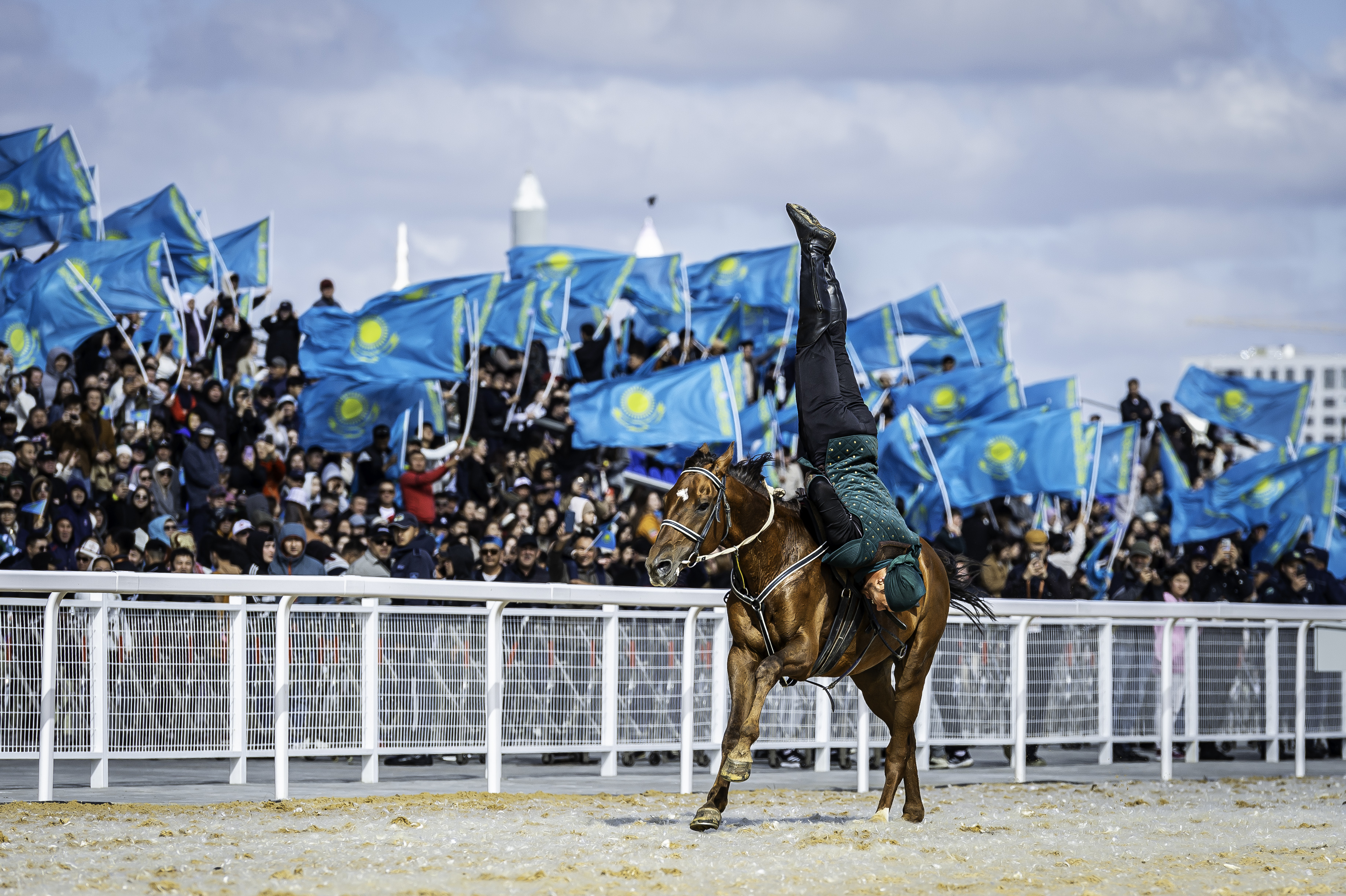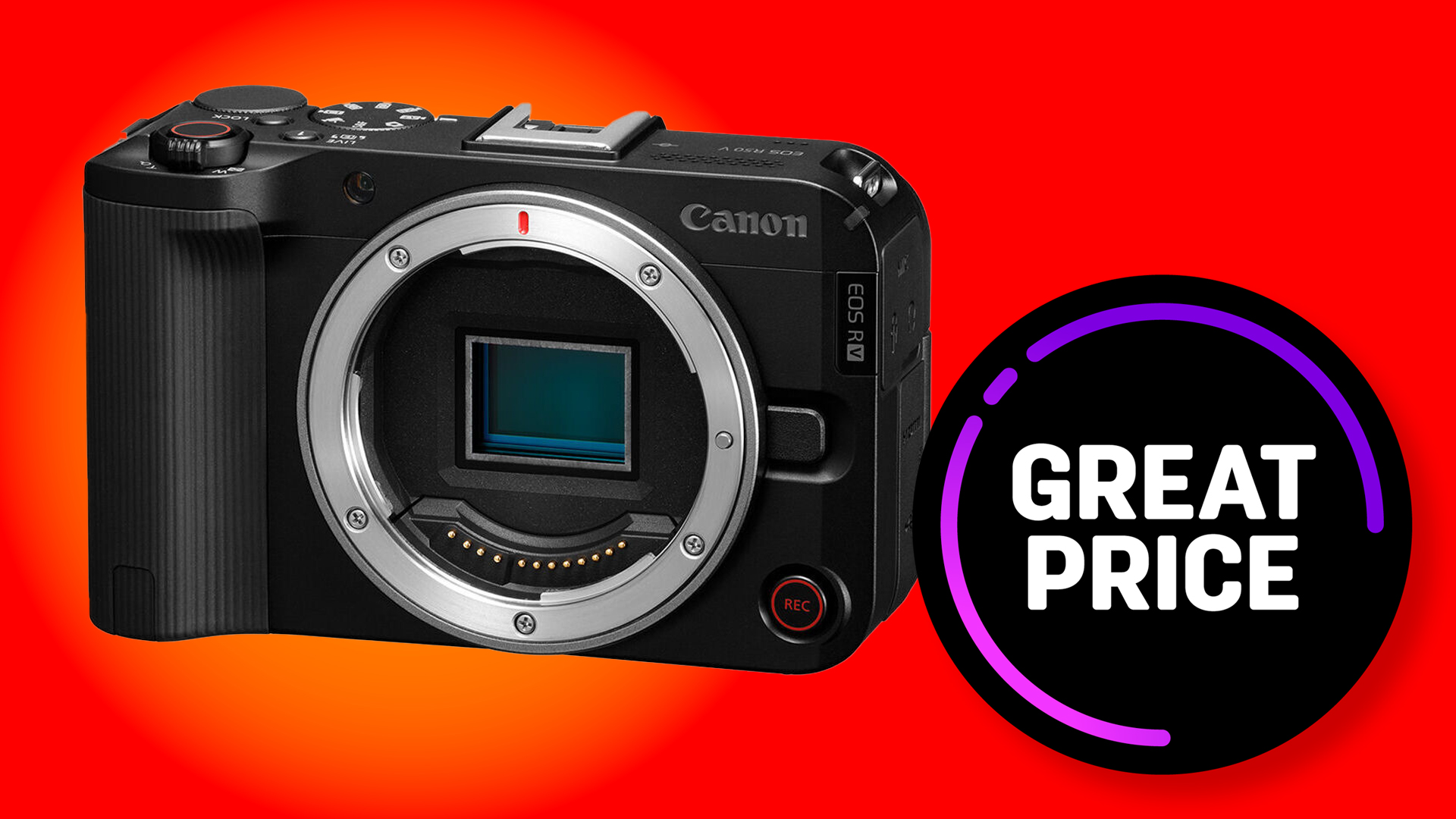"It's the toughest sport I’ve ever photographed. Kokpar is the equivalent of American football on horseback with a sheep's carcass for a ball"
Champion jockey-turned-photographer Richard Dunwoody wrangled a last-minute press pass to shoot one of the toughest sports known to man (and horse)

Following a career of falling off horses (682 times in all, but fortunately interspersed with a few winners along the way), when I walked through the doors of Speos International Photography School in Paris in 2010 I hoped it might take me on a journey – with time behind a lens that would not only open new doors but open my eyes.
After a year of reasonably hard graft and learning in the French capital, it has certainly done that. Photography has taken me to the slums of Delhi, shooting equines for the Brooke Charity, and to Kibera in Nairobi – one of the largest and poorest neighborhoods in the world to photograph families affected by AIDS.
I have shot Joanna Lumley in a muddy field surrounded by chickens, Supervet Noel Fitzpatrick replacing a dog’s hip joint in what seemed no time at all, and photography has also introduced me to royalty; the Duchess of Cornwall, as patron of the charity, attended my 2014 exhibition held in aid of Brooke.
Photography has also taught me to plan and be prepared for the various mishaps that can happen along the way. Since a generator blew up a power adaptor for my Mac on the Mongolian Steppe, I have always carried spares. And I became so neurotic that everything would fail, I would back up images twice – even thrice – as we bumped along dirt roads tracking a 1,000km horse race.
These days, after moving to Spain over five years ago, photographic assignments have become fewer and farther between. I have my own photo projects near Madrid but a lot of my time, from May to October, is now taken up with leading tours for Wild Frontiers Adventure Travel, owned by an old friend Jonny Bealby.
This year marked 21 years since I first accompanied Jonny on horseback across the snow-capped Kyrgyz mountains, camping in remote valleys and enjoying vodka-fuelled evenings with the clients in the mess tent. There is a little less vodka poured these days on tour, but Central Asia is still a prime location for the company, and I jumped at the chance this autumn to take a group to the 5th World Nomad Games in Astana.
Ever since blagging a press pass while at Speos to cover a France-Italy Rugby International, and trailing one of our greatest racing photographers Ed Byrne around Auteuil Racecourse in the Bois de Boulogne, I have always preferred shooting sport and action. So although we would probably be sat far back in stands at the World Nomad Games, I did take one of my old Nikon D4s and my go-to lens the Nikon 70-200mm f/2.8.
The best camera deals, reviews, product advice, and unmissable photography news, direct to your inbox!
As the name suggests the Nomad Games involves the sports of the Steppe; Kazakh wrestling and strong-man competitions, as well as equestrian sports, such as archery on horseback and – one of the toughest sports I have ever witnessed – Kokpar. It’s the equivalent of American football on horseback – and with a sheep's carcass for a ball.
Two of our group had already been to the Olympics during the summer and seemed to enjoy the Nomad equivalent just as much, if not even more, than Paris. So I was looking forward to an extra day at the Games after the tour had ended.
It was to be the day of the final of Kokpar, held at Astana racecourse between two bitter rivals: the hosts Kazakhstan and neighboring Kyrgyzstan. The sport involves picking up a 30kg sheep’s carcass (mercifully a dummy is used these days) from the floor and carrying it to your opponent’s goal – one of two circles on the ground at either end of the pitch.
From the moment a contender picks it up, they will have any one of the six opposing players trying to rip it from their grasp. Needless to say, it is played by some of the hardest, toughest and strongest guys I have seen astride a horse.
Although attended by a smaller crowd than you would have seen at the Stade de France, the atmosphere was electric. I was just about to take my place high up in the stands, more prepared to watch the match on the big screen than take images, when Mike Pullman, marketing guru at Wild Frontiers, texted me. "I have just managed to get a press pass for the final, would you like to shoot from the infield, beside the pitch?"
I was down the steps like a shot. Five minutes later I had the pass around my neck and was taking my position under the rails at the edge of the ground. But I was totally underequipped… no second body, no AF-S 24-70mm f/2.8 and certainly no AF-S 200-500mm f/5.6! But I would just have to make do. For 14 minutes it was one of the craziest, most hard-fought and most enjoyable sports events I have ever covered.
And then it just stopped. With the hosts 3-1 down and with mere minutes to play in the first half, there was an incident that led to the Kyrgyz team walking off the pitch, the mounted police became involved, and all photographers and cameramen were removed from the pitchside and sent back behind the rails.
I retired to the grandstand (perhaps my rightful place) and did a spectacularly bad job with the 70-200mm, capturing the crowd's reaction as the Kazakhstan team heroically fought back to equalize and send the game into extra time. And when they scored the winner, the crowd went nuts!
It had been another day behind the lens, planning and preparation had been dire, but what a day!
You might be interested in the best cameras for sports photography, along with the best lenses for sports photography. And don't forget to take a look at the best Black Friday camera deals.
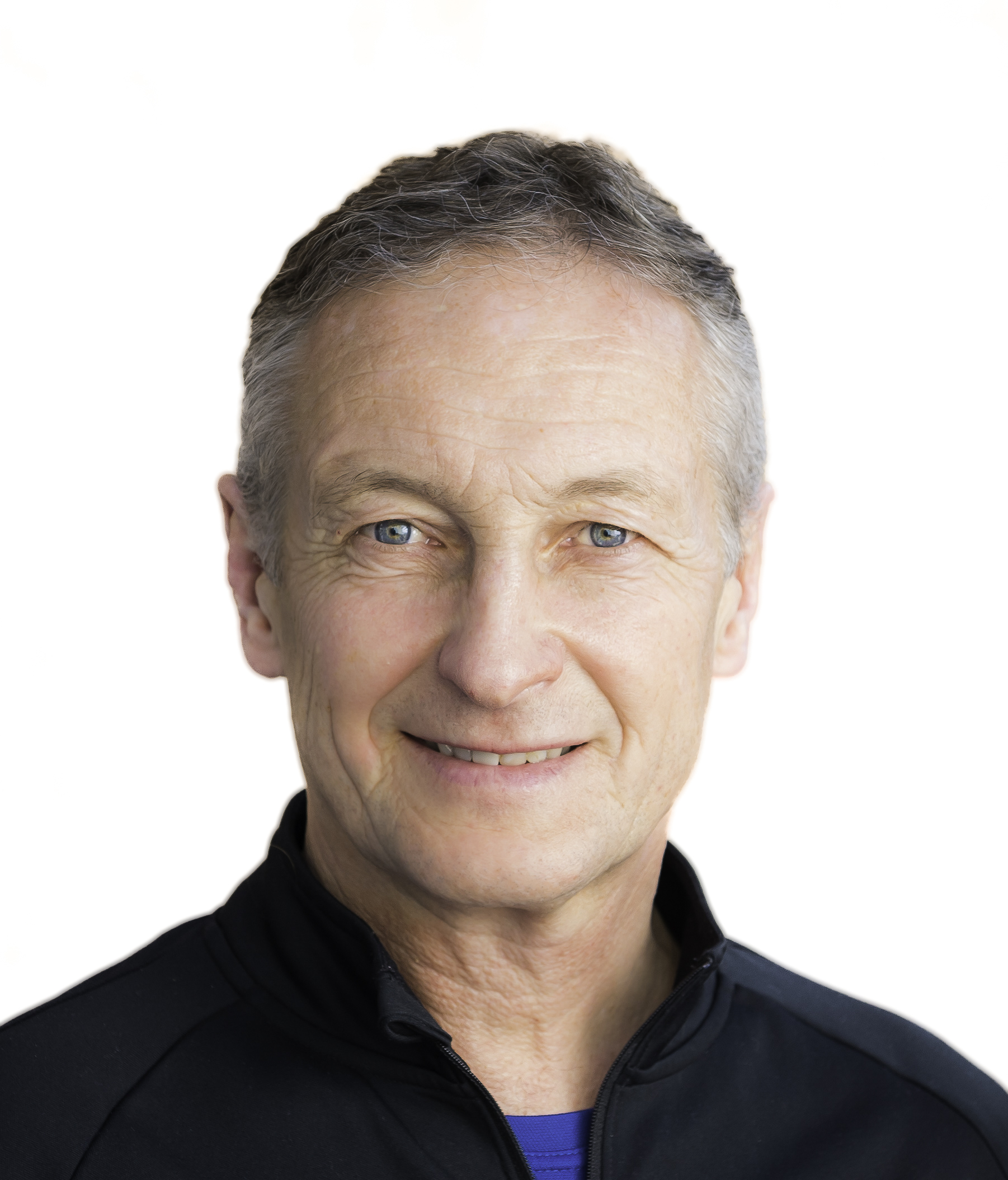
Richard Dunwoody MBE is a photographer, motivational speaker and tour leader for adventure travel company Wild Frontiers. He was previously a Champion Jockey.
- Adam WaringGuides Editor
